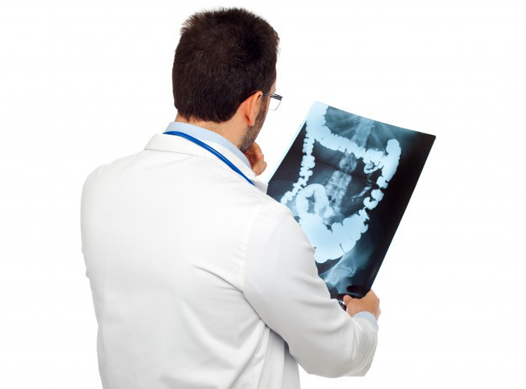There are many signs and symptoms of bowel cancer. Bowel cancer occurs when abnormal cells in the wall of the large bowel grow in an uncontrolled way.
How to know if you’re experiencing symptoms of bowel cancer
Australia has one of the highest rates of bowel and colon cancer in the world. If you are experiencing bowel problems or any signs of bowel cancer detailed this article we urge you to see a doctor.
Around one in 23 Australian will develop bowel cancer symptoms at some point in their life. However, there are measures that you can take today to prevent bowel cancer or lower your risk of developing the disease.
Angela’s Personal Story About Bowel Cancer Symptom Recognition
Angela’s story was published by the GI Cancer Institute, she was just 25 when first diagnosed with bowel cancer. She was in the middle of planning her wedding at the time.
The first symptoms that she noticed were bleeding. Her GP originally told her that it was nothing to worry about, because of her age. However, after pushing for further investigation, she was eventually diagnosed with bowel cancer.
According research and information provided by the Mayo Clinic, some warnings signs and symptoms of bowel cancer include:
- A change in your bowel habits: this can include diarrhea and constipation. As well as a change in the consistency of your stool which lasts longer for four weeks
- Blood in your stool or rectal bleeding
- Persistent abdominal discomfort, such as cramps, gas or pain
- Feel as if your bowel doesn’t completely empty
- General weakness or fatigue
- Extreme and unexplained weight loss
As with different cancers, you may feel little to no symptoms in the early stages of the disease. And when symptoms do appear, they’re likely to vary depending on the size of the cancer and its location in your large intestine.
When Is It Time To See A Doctor About Your Bowel Cancer Symptoms?
When you start to see symptoms such as blood in your stool or any persistent bowel problems – then it’s advised that you make an immediate appointment with your doctor. It’s important that you communicate with your doctor about when you should begin screening for bowel cancer.
Guidelines generally recommend that colon cancer screenings begin at age 50. However, if you have other risk factors (such as family history), then your doctor may recommend earlier or more frequent screenings.
How Do I Know If I’m at Risk of Developing Bowel Cancer?
There are a number of risk factors that may contribute to your risk of developing colon cancer. These include:
- Old Age: The majority of people diagnosed with colon cancer are aged 50 and over.
- Americans are at greater risk of developing colon cancer than other races.
- Personal History: People with a personal history of colorectal cancer or bowel polyps have a higher chance of developing symptoms again in the future.
- Inflammatory Intestinal Conditions: Chronic inflammatory diseases of the colon such as ulcerative colitis and Crohn’s disease can increase your risk of developing bowel cancer symptoms.
- Family History: If you have a family history of colon cancer then you’re more likely to develop symptoms.
- Diet: People who eat a diet high in fat and calories and low in fiber are at a higher risk of developing bowel cancer symptoms. Some studies have even linked colon cancer with high consumption of red meat and processed meat.
- Sedentary Lifestyle: If you’re inactive then you’re more likely to develop colon cancer. Engaging in regular physical activity is associated with lowering your risk of developing bowel cancer symptoms.
- Obesity: If you’re overweight then you have a higher chance of developing colon cancer in comparison with people of normal weight.
Summary:
- Around one in 23 Australians will develop bowel cancer at some point in their life
- Bowel cancer symptoms include: last change in bowel habits, blood in your stool, abdominal pain or cramps, and unexplained weight loss or fatigue
- Guidelines generally recommend that colon cancer screenings begin at age 50
- Bowel cancer risk factors include: old age, race, personal history, diet, lifestyle, and weight
You’ll find us conveniently located across Melbourne, with a highly experienced and team of gastroenterologists equipped with the latest tools and techniques to help prevent bowel cancer. Check out our website for more information or call our friendly staff.
References:
Mayo Clinic: http://www.mayoclinic.org/diseases-conditions/colon-cancer/symptoms-causes/dxc-20188239
Cancer Australia: https://canceraustralia.gov.au/system/tdf/publications/bowel-cancer-fact-sheet/pdf/bwl_bowel_cancer_factsheet.pdf?file=1&type=node&id=3601
The Gastro-Intestinal Institute: http://gicancer.org.au/personal-stories/angela-de-felice/
- When to get a colonoscopy, why you need one and how it all works - November 22, 2021
- Why Your Doctor Wants You to Get a Colonoscopy - October 12, 2021
- Why Australia’s Bowel Cancer Screening Age Should Be Lowered to 40 - July 23, 2021

